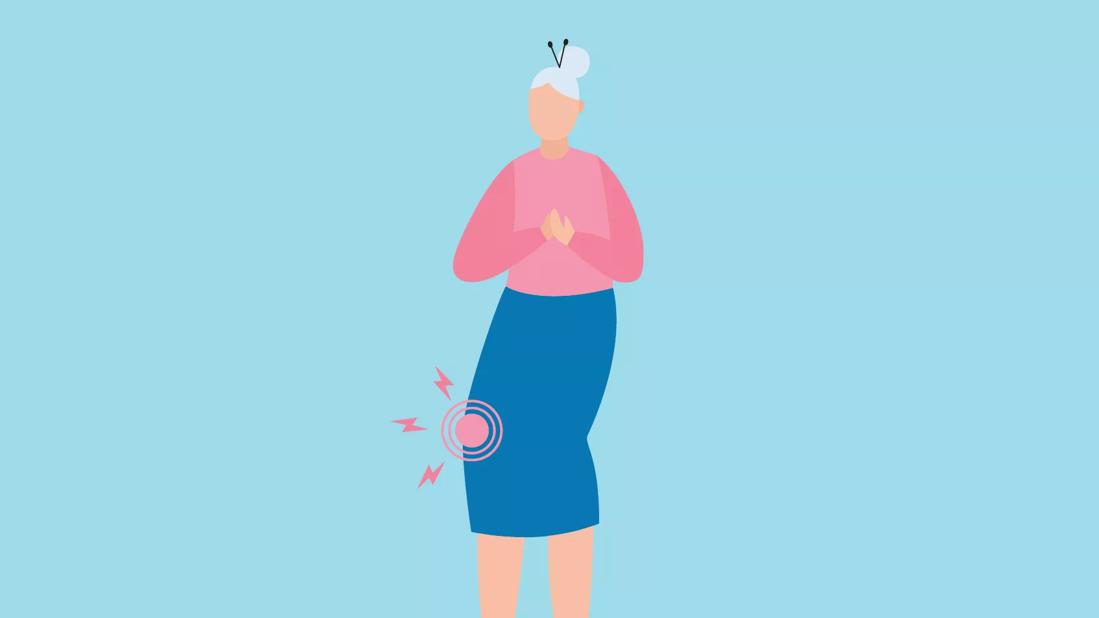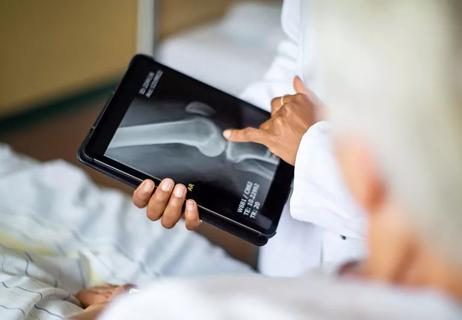Advertisement
A look at bone buildup and loss throughout your life

You rely on bones and joints to support your body and help you navigate around the world. But how exactly do your bones grow, and what happens to them over time?
Advertisement
Cleveland Clinic is a non-profit academic medical center. Advertising on our site helps support our mission. We do not endorse non-Cleveland Clinic products or services. Policy
Rheumatologist Chad Deal, MD, Head of Cleveland Clinic’s Center for Osteoporosis and Metabolic Bone Disease, explains how your bones change as you age and what you can do to keep them healthy.
Bone is densely packed with flexible fibers called collagen and hardened by calcium and phosphorus in a mineral called hydroyappatite. Your bones, which make up about 12% to 15% of your body weight, are built to withstand great stress from activities like walking, running and jumping.
And here’s a fun fact: Bone is a living tissue that constantly renews itself. “Your skeleton is completely new every five to 10 years,” Dr. Deal says.
When you’re born, you have about 300 bones, but over time, you end up with just 206. That’s because many of your bones, like the ones in your skull, fuse together as you grow.
In childhood and adolescence, bone buildup outpaces bone removal, or loss.
In your 20s, the density of minerals in your bones peaks. As you continue aging, your bone mass may stabilize if you lead a healthy lifestyle that includes adequate calcium, vitamin D and exercise.
Your bone mass also may start slowly declining, with bone loss overtaking bone buildup. Bone density declines without enough exercise, calcium, vitamin A, vitamin K and vitamin D from the foods you eat.
Advertisement
Natural bone loss accelerates in mid-life. This is especially true for women during menopause (typically around age 50, defined as premature menopause if it happens before age 45). During this time, levels of protective estrogen decline.
“For men, the loss is more gradual because testosterone declines slowly,” Dr. Deal explains.
By age 65, though, everyone is in the same boat, as the rate of bone loss evens out among the sexes. From there, bone mass gradually declines for the rest of your life, which puts you at a greater risk for fractures.
“For each five years that passes after age 65, your risk of fracture essentially doubles,” Dr. Deal says.
If bone thinning makes your bone density drop below normal, you have osteopenia or osteoporosis, which weaken bones. This silent problem usually causes no symptoms but puts you at risk for fractures. Spine fractures can cause back pain and/or a dowager’s hump.
“It’s important to know that two-thirds of all spine fractures are asymptomatic,” Dr. Deal says. “And most fractures occur in patients with osteopenia, not osteoporosis, so early identification, prevention and treatment are important.”
There are some steps you can take to keep your bones strong and healthy. Here’s how.
Calcium and vitamin D work together to strengthen and protect your bones, so eat foods rich in both to keep your bones healthy.
Dietary calcium is preferred to supplements, with a recommended daily intake of 1,000 and 1,200 mg per day. In healthy people, the amount of vitamin D needed per day varies by age.
In this case, we’re not talking about lifting weight. Rather, Dr. Deal explains, we’re talking heel-strike activities, when you put your foot to the floor and send a mechanical stimulus through your skeleton. “Heel-strike activities like walking will stimulate new bone formation,” Dr. Deal says.
There are many reasons to quit or avoid smoking, so add your bones to the list. Smoking is toxic to your cells and lowers your estrogen levels. “There’s nothing nicotine is good for, including your bones,” Dr. Deal notes.
A DXA bone density test is an imaging test that measures your bone density. Women should get DXA tests starting at age 65, while men should get them starting at age 70.
“If you have clinical risk factors for bone loss or fracture, you may need DXA earlier,” Dr. Deal advises. Those risk factors include:
If you have osteopenia or osteoporosis, certain medications can slow bone loss. And if you’re at high risk for developing those conditions, medications are vital. These fall into two classes: antiresorptive, which stops the body from re-absorbing bone tissue; and anabolic, which builds bone in people who have osteoporosis.
Advertisement
Get the care you need for thyroid disorders, parathyroid disorders, premature menopause or any other health condition that affects your bone density.
Advertisement
Learn more about our editorial process.
Advertisement

Getting enough of this essential mineral is important for your bones, teeth and so much more

Eating enough dairy, fish and leafy greens is a good way to help keep your bones strong

Plus ways to keep bones healthy and strong

Why pills aren't a substitute for food

Vitamin D is an umbrella term for both D2 and D3 — both help keep your bones and immune system strong

Exercising and stretching your lower back, hamstrings, hips and quads can greatly improve your physical well-being

If you’re feeling short of breath, sleep can be tough — propping yourself up or sleeping on your side may help

If you fear the unknown or find yourself needing reassurance often, you may identify with this attachment style

If you’re looking to boost your gut health, it’s better to get fiber from whole foods